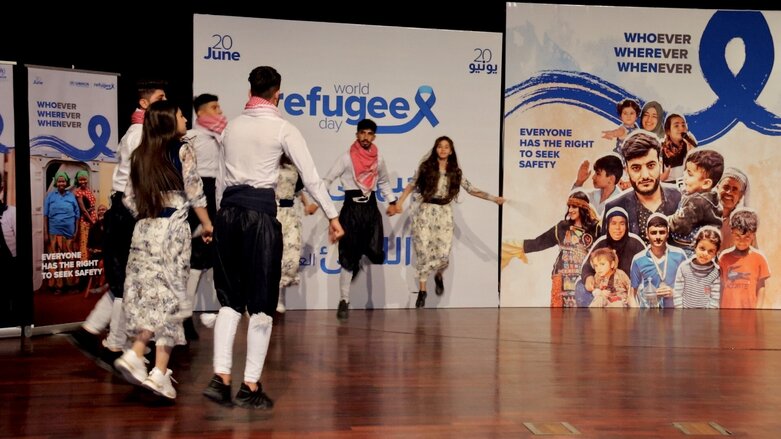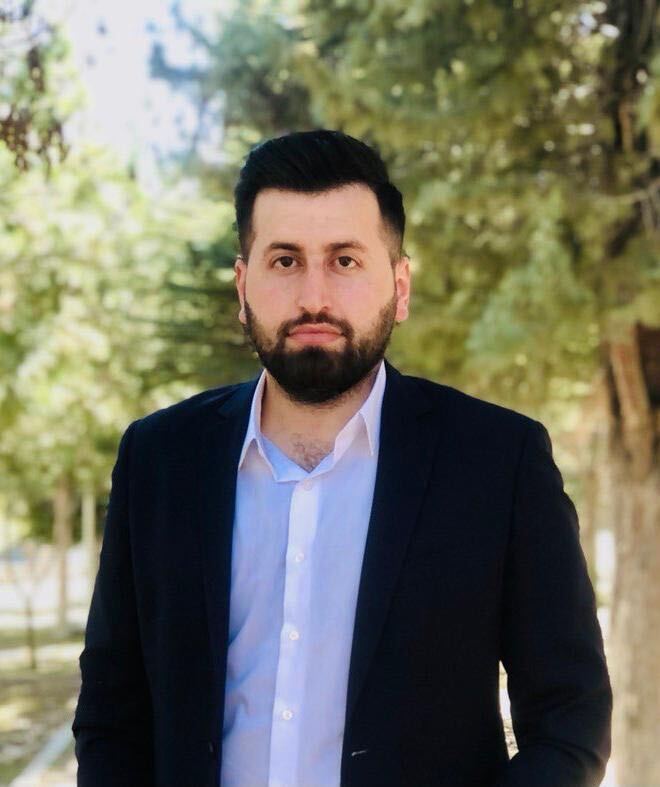International aid for IDPs and refugees in Duhok decreasing

DUHOK (Kurdistan 24) – As the world marked World Refugee Day on June 20, 131,700 refugees, mostly Syrians, still live in Kurdistan Region’s Duhok province. That number increased following Turkey’s last major military operation in northeast Syria in October 2019.
The figure does not include the 64,591 families of internally displaced persons (IDPs), almost all of whom are from the Yezidi-majority Sinjar region, living in the province.
The people of Duhok, despite enduring hardships of their own, warmly welcomed all these IDPs and refugees.
Syrian refugees in Duhok presently don’t see an opportunity to safely return to their country. Similarly, IDPs from Sinjar are reluctant to return due to continued instability there.

Meanwhile, aid for these people has gradually decreased, leaving Duhok’s local government in a difficult situation as it tries to maintain services for this population.
In a speech marking World Refugee Day on June 20 in Duhok city, the acting representative of the UN refugee agency in Iraq, Nicole Epting, thanked the Kurdistan Regional Government (KRG) and the people of Duhok for their continued efforts and support to ensure refugees and displaced are supported.
Epting also noted that they reached a tragic new milestone just a few days ago. A record 100 million people have been forced to flee their homes worldwide. More needs to be done by all countries to address this, Epting said.
According to data provided to Kurdistan 24 by the Department of Migration and Displacement and Crisis Response in Duhok, there are 19,580 refugee families living in the province, 11,261 of which live inside five camps. Over 8,000 refugee families reside outside the camps.
According to the data, 26,321 IDP families live inside 15 camps and 38,270 outside camps in Duhok province.
Water maintenance in Domiz 1 and Domiz 2 refugee camps has been funded by UNICEF for years. However, this was disrupted after their contract ended on June 1.
Dayan Jaffar, director of the Department of Migration and Displacement and Crisis Response in Duhok, said that a conference is expected to be held in the Kurdistan Region’s capital Erbil to discuss the matter with the UN and the Iraqi migration and displaced ministry.
Relevant authorities in Duhok believe that the Iraqi government must address this issue, especially since the Iraqi finance minister expressed optimism about Iraq’s financial situation a few months ago.
Jaffar suggested that the Iraqi government has two choices. It can either help provide aid to the camps or stabilize the situation in Sinjar so the displaced can return. The latter option, he said, is possible by implementing the UN-sponsored Sinjar agreement signed between Erbil and Baghdad in October 2020.

The KRG has reiterated that it will not force any displaced person back to their places of origin or shut down any of the camps in the Kurdistan Region as long as they are needed. On the other hand, the Iraqi government has ordered the closure of camps.
When ISIS displaced hundreds of thousands of Yezidis from Sinjar beginning in August 2014, humanitarian organizations generously provided aid. More recently, however, less aid has been provided by international non-government organizations (NGOs), said Jaffar.
He also proposed that a conference should be organized to tackle the issue of Sinjar’s neighboring Arab community since many of them collaborated with ISIS in their genocidal atrocities against Yezidis. That community should help by bringing forward people involved in those crimes so that trust can be rebuilt between Arabs and Yezidis, he said.
Thousands of houses in Yezidi towns and villages were destroyed by ISIS. Jaafar stated that they need to be rebuilt to facilitate resettlement.
And most importantly, Yezidis must be compensated because they suffered a genocide that must be internationally recognized, he said.
Jaffar predicts that aid will further decrease over the next year due to all the new conflicts in the world.
“It’s not only about financial aid. Yezidis have survived genocide. They need support and attention. Otherwise, their psychological conditions will only worsen,” he warned.
The KRG spends hundred of millions of Iraqi dinars monthly to provide electricity for the camps. In Duhok, Jaffar’s directorate has not been able to pay the Ministry of Electricity the 171 billion Iraqi dinars ($117 million) it owes.
It is the duty of the Iraqi government, especially the ministry of migration and displaced, to pay for camps’ electricity and water, said Dayan.
On May 2, at least 10,000 formerly displaced people from Sinjar were displaced yet again after clashes erupted between the Iraqi Security Forces and armed groups inside Sinjar. Now, these displaced want security guarantees before they consider returning again.
.jpg)
Rashid Elyas, an IDP from Sinjar, said they still can’t return since the region is still full of different armed groups.
Buhar Daud, another IDP, said they wished they could return to Sinjar today before tomorrow. However, this is infeasible until conditions in Sinjar change so she and her family can return safely.
In a region that suffers frequent conflicts, a new wave of refugees is always something for which preparations need to be made. In light of this dire reality, the Department of Migration and Displacement and Crisis Response in Duhok is compelled to make preparations and take precautions at all times.
